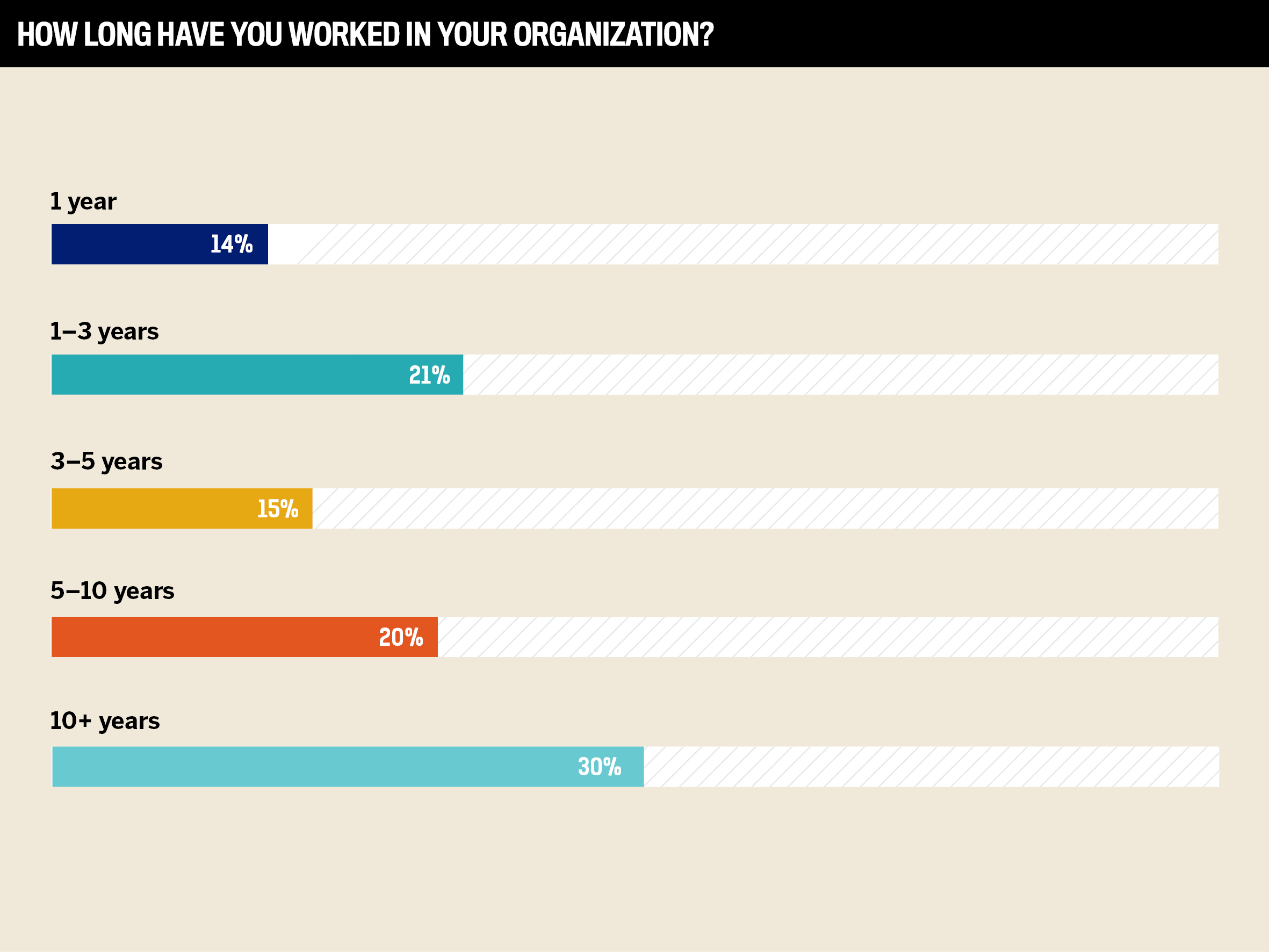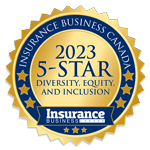
5-Star Diversity, Equity and Inclusion
Jump to winners | Jump to methodology
The great DE&I journey
Insurance Business Canada’s 14 Diversity, Equity and Inclusion (DE&I) award winners have been recognized not only for their stellar achievements in fostering more progressive working environments but also for their ongoing commitment to their programs.
“DE&I work is a journey of learning, dialogue, social change, actions and shared accountability,” explains Anne-Marie Pham, CEO of the Canadian Centre for Diversity, and Inclusion (CCDI). “Because the workplace is continually changing with new employees, changing markets with new clients and expectations, organizations have to evolve over time in order to be responsive and adaptive – and that leads to long-term sustainability.”
“As we move towards a more equitable society, there are some people who feel like they are losing power or being left behind. DE&I is a journey and not everyone is moving at the same speed, so we need to help those who are fearful or angry about these changes”
Rob Chiarello, Pacific Blue Cross
Insurance companies, as evidenced by IBC’s award winners, will not all implement DE&I in the same way.
“The insurance industry is not a monolith and there will inevitably be differences among various insurance companies in how ready and committed they are in their DE&I work. Those that show the most progress are those that are thoughtful about instituting change throughout the ecosystem – whether it be in hiring, retention, promotion, or how programs and services are developed and implemented – and engaging in dialogue to review progress and course correct throughout the year as needed,” Pham adds.
What is a top-performing DE&I program?
Survey respondents ranked a series of statements in order of importance and the results are listed in the chart below.
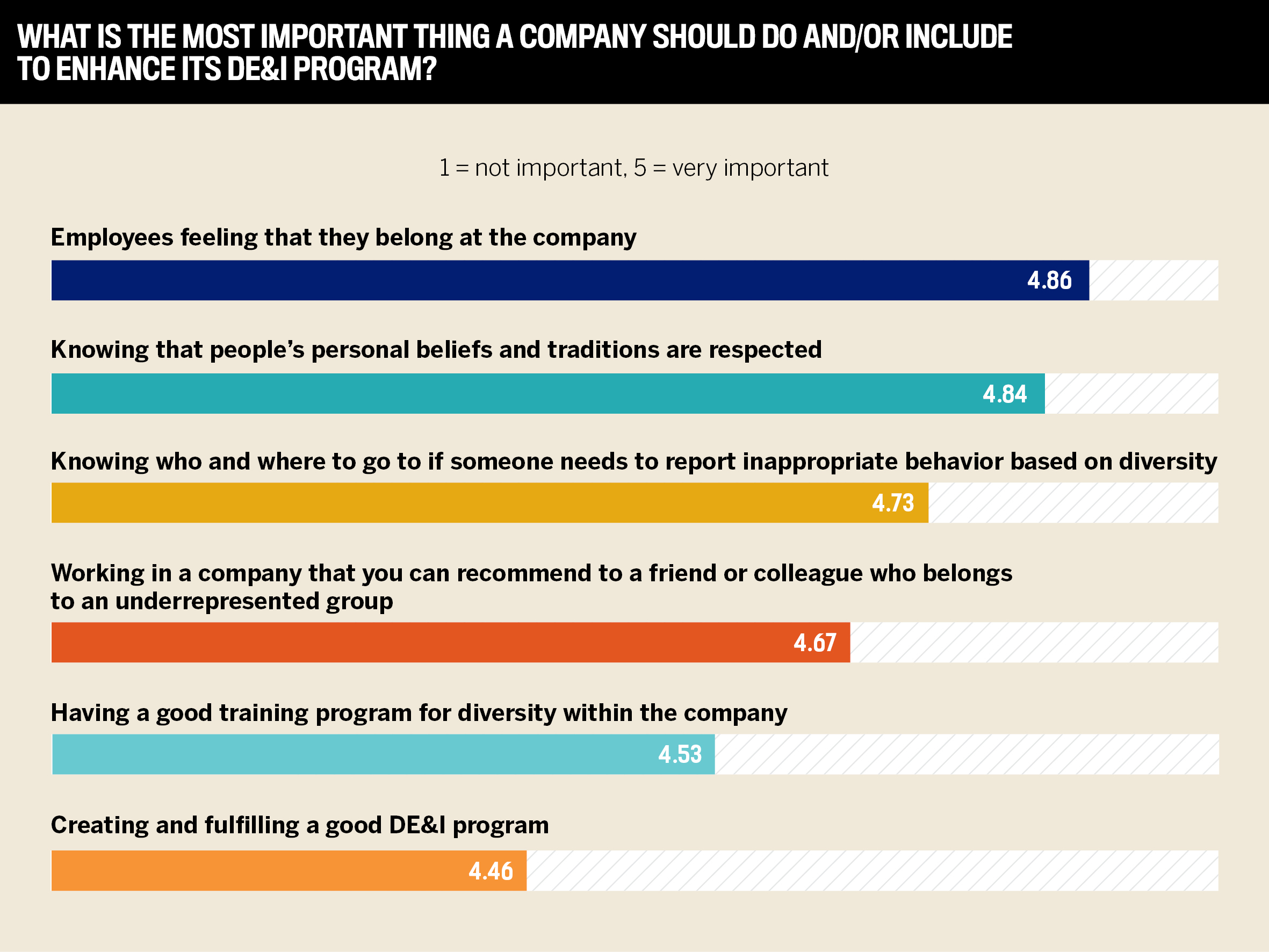
Included in IBC’s research were replies from 50 Pacific Blue Cross (PBC) employees.
Associate vice president Brooke Moss says “it’s an expectation and an opportunity to attract strong talent and customers.”
Manager, financial planning & analysis Maya Lanto, comments, “It’s a crazy world out there. People come from different backgrounds. Implementing a policy will ensure everyone understands each other.”
PBC director Cathy Nurmi says, “People deserve to feel safe and valued at work.”
“I’m pleased with this ranking,” says Rob Chiarello, senior vice president of people and culture at PBC. “The top three that our staff have highlighted are a part of our DE&I purpose statement, so this really tells me we are on the right track.”
Jenna Minchella, the head of people and culture at award winner Mitch Insurance, emphasizes that it’s vital to make DE&I a strategic priority. “Diversity and inclusion can elevate us in so many ways, creating opportunities for everyone in the organization and showing the team what’s possible and really just being an advocate for growth and development for everyone.”
Her colleague, Mitch Insurance training lead Rhonda Reist, says on the survey that being treated equally is a basic human right. “In the day we’re living in there is so much hate, and companies need to be diligent and address these issues right away so people can work in a safe environment in order to allow their gifts and talents to be fully expressed.”
At fellow award winner QBE Services, Lisa Wolfe is the underwriting manager, property. “A [DE&I] program is key to providing direction, accountability and a form of measure,” she says. “You need to be able to identify challenges and gain insights into what the obstacles are. I think it also allows you to adequately address those issues, report on them and address the root causes. It also helps address and change the organizational culture to be more accepting and supportive and reduces the risk of some of the negative consequences that you might face with pushback.”
Ann Stevens, finance administrative assistant at QBE, says DE&I programs are important “to protect both the company and employees.” An anonymous participant from QBE explains, “DE&I absolutely has to be measured in numbers; what does your company representation look like across all verticals? Most companies have a DE&I policy but without an accountable measurement this doesn’t necessarily translate to results. I’m pleased to work for a company that has representation across our leadership, notably women and visible minorities. There is a true sense of belonging for this reason that can’t be replicated merely through a DE&I-related mandatory training session.”
“Diversity and inclusion can elevate us in so many ways, creating opportunities for everyone in the organization and showing the team what’s possible and really just being an advocate for growth and development for everyone”
Jenna Minchella, Mitch Insurance
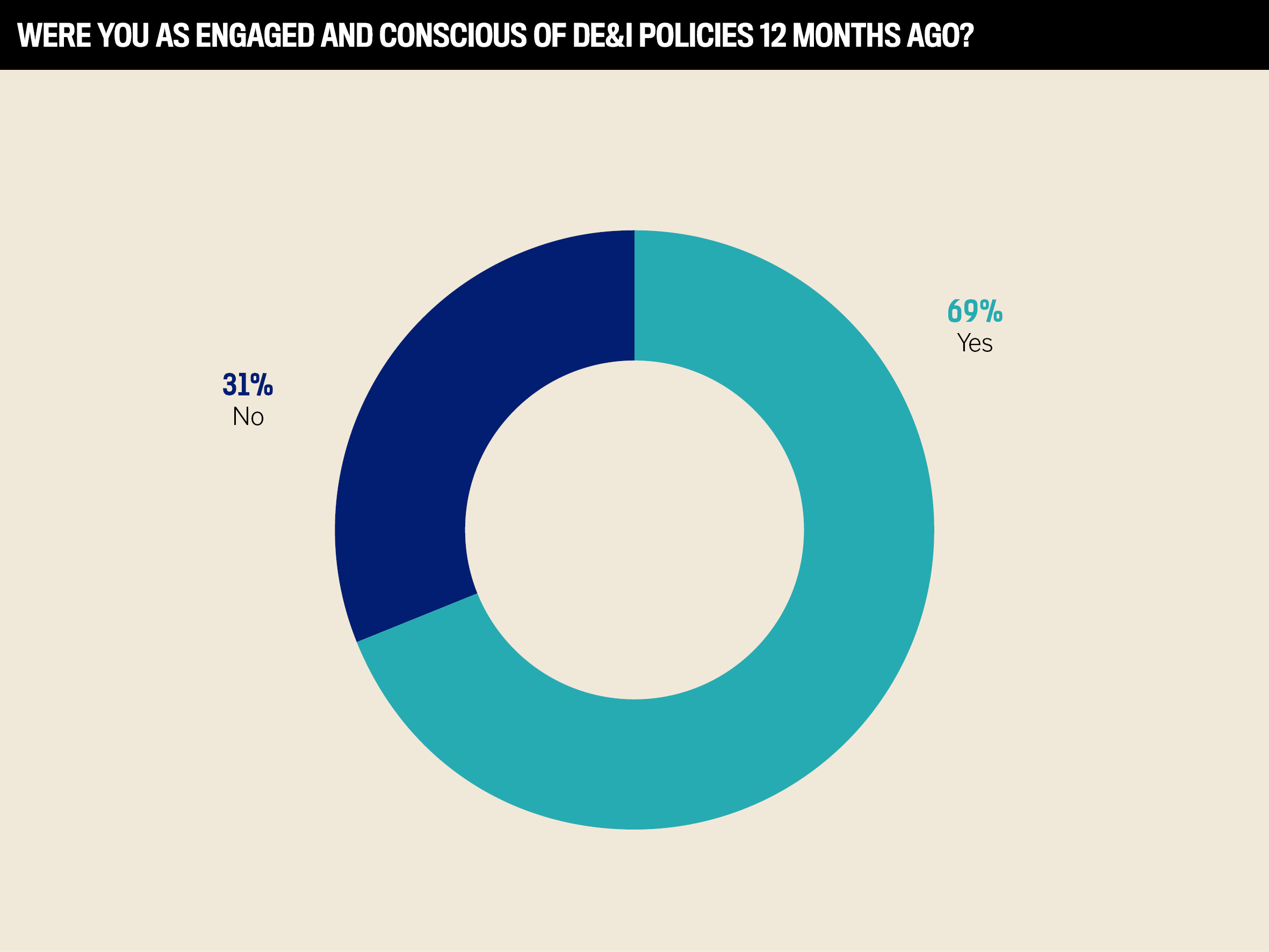
Winners reflect on survey findings
Mary Martin, PBC’s director of learning and engagement, feels the survey rankings ring true with her company’s values. “I think those top ones, they’re really saying that our employees feel like they belong and that their personal beliefs and traditions are respected.” Creating and fulfilling a good DE&I program ranked lowest, something that Martin says is likely because “our training programs are amazing and have built a solid foundation.”
Also reflecting on the survey results, Minchella comments that “not only is it necessary to have a good DE&I program, but it’s also really important to make sure your employees feel like they belong. This is something that we really try to include in our everyday lives here at Mitch, and it’s included in our values and our culture statement.”
Wolfe also agrees with much of the sentiments shared by her industry peers and explains that the survey results aren’t surprising as they align with internal surveys at QBE. “These are some of the overarching themes that come back to us,” she says. “Everyone wants to feel included and a part of the organization, and everyone wants to know that they’re being invited to the party and asked to dance.”
“DE&I work is a journey of learning, dialogue, social change, actions and shared accountability”
Anne-Marie Pham, Canadian Centre for Diversity and Inclusion
Challenges to the DE&I movement
From disregarding historically overrepresented groups to more politically correct company cultures, the DE&I movement hasn’t been without criticism. What do the winners think?
“As we move towards a more equitable society, there are some people who feel like they are losing power or being left behind,” says Chiarello. “DE&I is a journey and not everyone is moving at the same speed, so we need to help those who are fearful or angry about these changes.”
Martin adds, “I think far too often we do DE&I initiatives because we know in our hearts that they are the right things to do. However, we don’t create a solid change management plan to help those who may not be as far in their DE&I journey to embrace it.”
Meanwhile, Minchella does not necessarily see any negative impacts, rather people implementing DE&I programs but not seeing them through. “You really have to sincerely, genuinely drive DE&I and keep it as a priority and really own it,” she says. “I think if organizations are just talking about it but not actually doing anything, it can definitely negatively impact them from an employee standpoint or as a business.”
Wolfe agrees with Minchella and says there isn’t much negative about it. “There’s continued challenges,” she says. “As much as we’ve been able to accomplish and move forward, there’s still a lot of work to be done. There are a lot of moving parts with DE&I. Some people tend to focus on diversity, which can mean many things. Others focus on inclusion, which is also a grey area. So, I think that we need to heighten our focus around equity as well – equity being one of the most measurable in terms of numbers that give you accuracy in terms of the statistics and the measurements.”
Summing up the intricacies and challenges to pursue an effective DE&I strategy, the CCDI’s Pham says that it “requires courage, humility, vulnerability and an ability to collaborate effectively with all affected parties”.
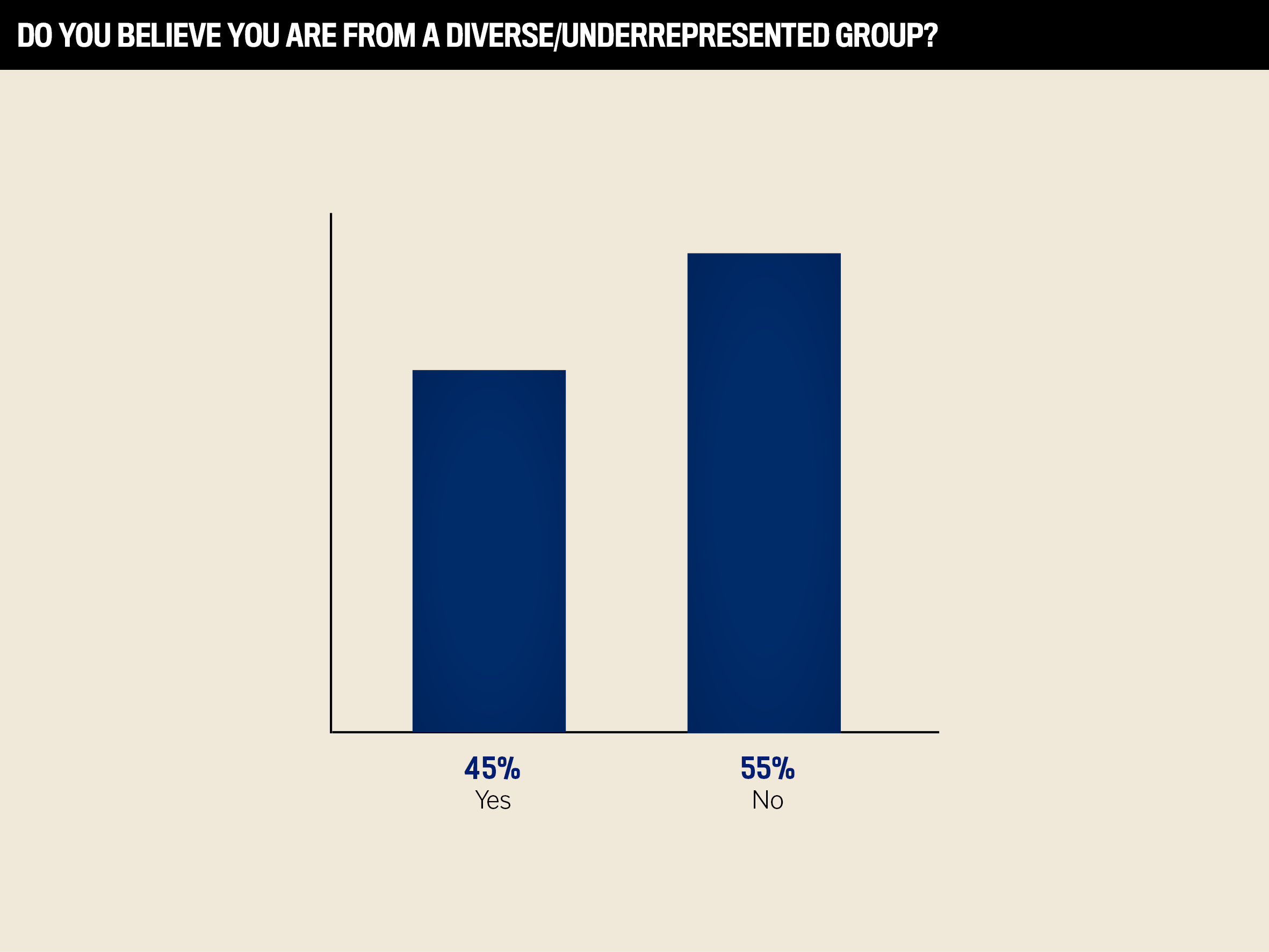
“Everyone wants to feel included and a part of the organization, and everyone wants to know that they’re being invited to the party and asked to dance”
Lisa Wolfe, QBE Services
5-Star Diversity, Equity and Inclusion
10,000+ employees
2,500–9,999 employees
- Insurance Corporation of British Columbia
500–2,499 employees
- Beazley
- Pacific Blue Cross
- Westland Insurance Group
100–499 employees
- Liberty Mutual Canada
- Markel Canada
- Zensurance
1–99 employees
- Ai Insurance Organization
- Finandicap
- Mitch Insurance
- QBE Services
- The Mutual Fire Insurance Company of British Columbia
- TruStar Underwriting
Methodology
To determine the insurance companies with the most effective DE&I programs, Insurance Business Canada’s research team first invited firms to share the DE&I initiatives they have focused on over the past 12 months. During a 15-week process, the team conducted one-on-one interviews with professionals to gain a keen understanding of the industry standards for DE&I and find out which companies have met or exceeded these expectations. After receiving nominations for DE&I initiatives, the team reached out to the companies’ employees to gauge the effectiveness of these programs. The companies that scored 4 or higher on a scale of 1 to 5 were recognized for having 5-Star DE&I programs.
Keep up with the latest news and events
Join our mailing list, it’s free!

